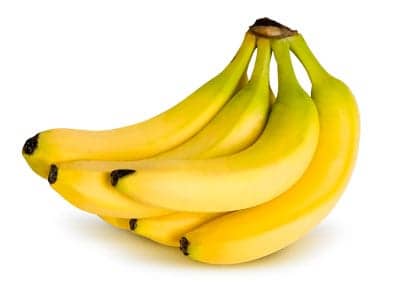New research indicates that postmenopausal women who consume potassium-rich foods may have a lower risk of stroke and death than women who consume less potassium-rich food. The study appears in the American Heart Association’s journal Stroke.
A news release issued by the American Heart Association states that researchers studied 90,137 postmenopausal women, aged 50 to 79 years old, for an average 11 years. The researchers investigated how much potassium the women consumed, as well as if they had sustained strokes, including ischemic and hemorrhagic strokes, or died during the study period.
The release notes that the women in the study were stroke-free at the start and had an average dietary potassium intake of 2,611 mg/day. The researchers add that results of the study are based upon potassium from food, not supplements.
The results suggest that women who consumed the most potassium were 12% less likely to sustain a stroke in general and 16% less likely to sustain an ischemic stroke than women who ate the least. Women who consumed the most potassium were also 10% less likely to die than women who ate the least. The results also indicate that among women who did not have hypertension (whose blood pressure was normal and they were not on any medications for high blood pressure), those who ate the most potassium had a 27% lower ischemic stroke risk and 21% reduced risk for all stroke types, when compared to women who consumed the least potassium in their daily diets. Additionally, the release states that among women with hypertension (whose blood pressure was high or they were taking drugs for high blood pressure), those who consumed the most potassium had a lower risk of death, however potassium intake did not lower stroke risk.
Researchers state in the release that higher dietary potassium intake may be more beneficial before high blood pressure develops. Additionally, the study did not indicate evidence of any link between potassium intake and hemorrhagic stroke, which researchers say could be related to the low number of hemorrhagic strokes in the study.
“Our findings give women another reason to eat their fruits and vegetables. Fruits and vegetables are good sources of potassium, and potassium not only lowers postmenopausal women’s risk of stroke, but also death,” says Sylvia Wassertheil-Smoller, PhD, senior study author and distinguished university professor emerita, department of epidemiology and population health at Albert Einstein College of Medicine, Bronx, NY.
Wassertheil-Smoller acknowledges that while increasing potassium intake may benefit older women, there are some individuals who have too much potassium in their blood, which can pose danger to the heart. She recommends that individuals check with their doctor regarding how much potassium they should consume.
According to the release, the study was observational and included only postmenopausal women. Researchers also did not take sodium intake into consideration, so the balance between sodium and potassium does not appear among the study’s findings.
The researchers call for more studies to pinpoint whether potassium has the same impact on men and younger people.
Source(s): Science Daily, American Heart Association




